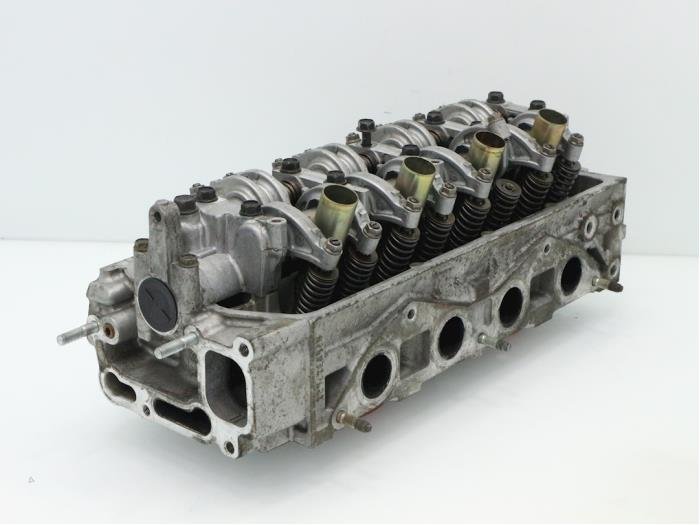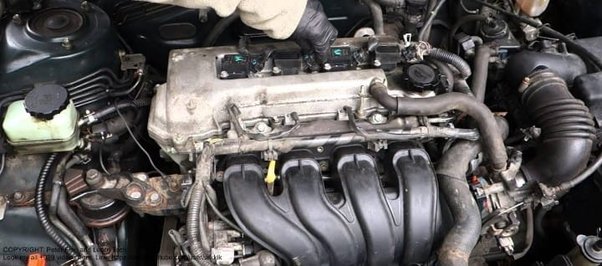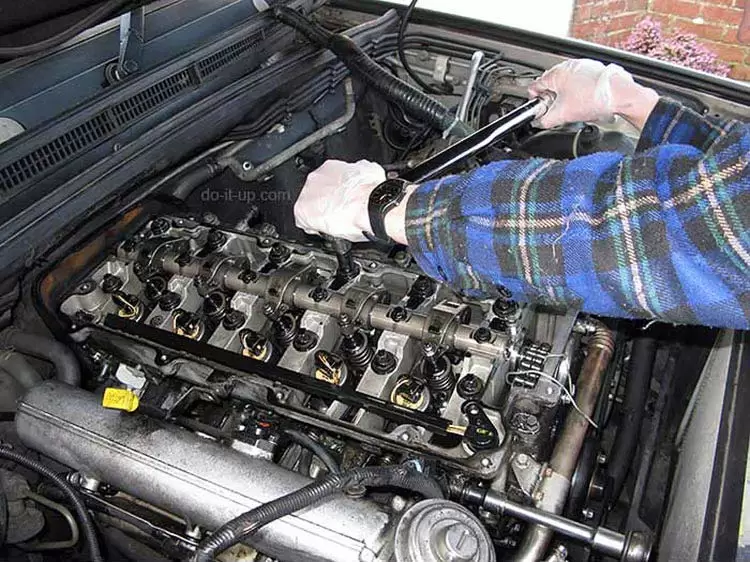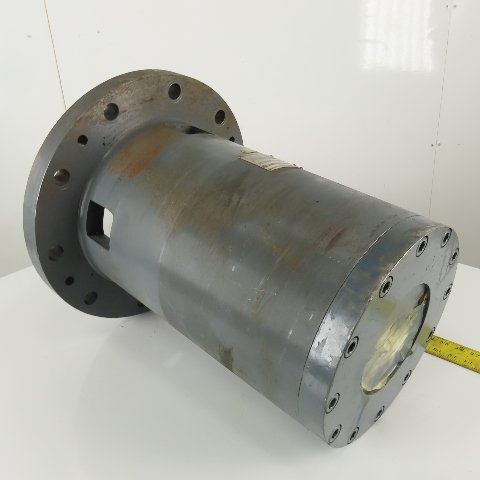Maintenance and Care for Car Cylinders : Boost Your Engine Knowledge!
Car cylinders are essential components of an engine that house the pistons. They play a crucial role in the combustion process.
Car cylinders are pivotal in determining engine performance. Each cylinder contains a piston that moves up and down, compressing the fuel and air mixture. This compression ignites the mixture, creating the power that drives the vehicle. The number of cylinders in an engine can vary, typically ranging from three to twelve.
More cylinders generally mean more power and smoother operation. However, they can also lead to increased fuel consumption. Engines with fewer cylinders often offer better fuel efficiency but may lack the power of their multi-cylinder counterparts. Understanding the role and function of car cylinders helps in making informed decisions about vehicle performance and efficiency.
What Is A Cylinder In A Car?
Car cylinders house the pistons that compress the air-fuel mixture, essential for combustion. These components directly impact engine performance and power. Efficiently functioning cylinders are vital for smooth vehicle operation and optimal fuel consumption.
Engines are the heart of any vehicle, and cylinders are fundamental to their operation. Understanding car cylinders can enhance your appreciation of automotive engineering.
A cylinder in a car is a crucial component of the engine where fuel combustion occurs. Let’s delve into the specifics to grasp its importance.
Structure And Function Of A Car Cylinder
The cylinder’s design and role are vital for engine performance:
- Shape and Material: Cylindrical and made from durable materials like cast iron or aluminum.
- Piston Movement: Houses the piston that moves up and down.
- Combustion Process: Combines fuel and air, igniting to produce power.
- Cooling Mechanism: Integrated with cooling systems to prevent overheating.
Types Of Car Cylinders
Engines feature various cylinder types, each with unique benefits.
Inline Cylinders: Positioned in a straight line, common in smaller cars.
- V-shaped Cylinders: Arranged in a V configuration, enhancing power and compactness.
- Flat Cylinders: Positioned horizontally, lowering the center of gravity for better handling.
Importance Of Cylinders In Engine Performance
Cylinders significantly impact an engine’s efficiency and power output.
Each cylinder functions as a miniature engine. The more cylinders, the smoother the engine runs. This directly influences acceleration and fuel economy.
Maintenance And Care Of Car Cylinders
Proper maintenance ensures longevity and performance.
- Regular Inspections: Check for wear and tear.
- Oil Changes: Lubricate the pistons for smooth operation.
- Cooling System: Ensure the cooling system works efficiently to prevent overheating.
- Compression Tests: Regularly perform to check cylinder health.
These practices keep your engine running at its best.
How Car Cylinders Work
Car cylinders play a crucial role in engine performance. They house pistons, which move to convert fuel into mechanical energy. This process drives the vehicle forward efficiently.
Imagine the heart of your car’s engine, beating with precision and power. Car cylinders play a pivotal role in this complex mechanism. They’re not just metal tubes; they’re the chambers where energy transforms. Understanding how they work helps you appreciate their importance.
The Function Of Car Cylinders
Car cylinders serve as the core of the internal combustion process. Each cylinder houses a piston. As fuel and air ignite, they create a controlled explosion. This force drives the piston downward, generating power. The piston’s movement then turns the crankshaft, propelling the car forward.
Cylinder Components
Several critical components work together within the cylinder:
- Piston: Moves up and down, compressing air and fuel.
- Cylinder Head: Seals the top of the cylinder and contains valves.
- Valves: Control the intake and exhaust of gases.
- Spark Plug: Ignites the air-fuel mixture.
These parts must function in harmony for optimal performance.
The Combustion Cycle
The combustion cycle, also known as the four-stroke cycle, ensures efficient power generation. It includes:
- Intake Stroke: The intake valve opens, allowing the air-fuel mixture into the cylinder.
- Compression Stroke: The piston compresses the mixture, making it more explosive.
- Power Stroke: The spark plug ignites the mixture, causing the explosion that pushes the piston down.
- Exhaust Stroke: The exhaust valve opens, expelling burnt gases from the cylinder.
Each stroke plays a vital role in maintaining engine efficiency.
Importance Of Cylinder Maintenance
Regular maintenance keeps your cylinders in top shape. Ignoring this can lead to serious issues. Key maintenance tips include:
- Regular Oil Changes: Keeps pistons and cylinders lubricated.
- Check for Leaks: Ensures seals and gaskets are intact.
- Monitor Engine Performance: Early detection of issues can prevent costly repairs.
- Use Quality Fuel: Reduces deposits and keeps the combustion process clean.
Proper care enhances engine longevity and performance.
Common Cylinder Issues
Cylinders can face various issues over time, such as:
- Wear and Tear: Caused by friction and heat.
- Cylinder Scoring: Scratches inside the cylinder, reducing efficiency.
- Piston Ring Failure: Leads to loss of compression and power.
- Valve Problems: Affect the intake and exhaust processes.
Timely intervention can resolve many of these problems.
What Are The Different Types Of Cylinder Engines?
Car cylinders come in various configurations, including inline, V-type, and flat engines. Inline engines align cylinders in a single row. V-type engines arrange cylinders in a V shape, while flat engines position them horizontally.
Car cylinders play a crucial role in an engine’s performance. Understanding the different types of cylinder engines can help you appreciate the complexity and variety of automotive engineering. Let’s dive into the various types of cylinder engines and what makes each unique.
Inline Cylinder Engines
Inline cylinder engines are among the most common types found in vehicles today.
- Simple design: Easy to manufacture and maintain.
- Smooth operation: Balanced power delivery and low vibration.
- Fuel efficiency: Optimized for better fuel economy.
V-type Cylinder Engines
V-type engines have cylinders arranged in a V shape, offering distinct advantages.
- Compact design: Fits into smaller engine bays.
- High power: Provides more power in a compact form.
- Better cooling: Improved airflow between cylinders.
Flat Or Boxer Cylinder Engines
Flat or boxer engines have cylinders lying flat on either side of the crankshaft.
This design provides several benefits:
- Low center of gravity: Enhances vehicle stability and handling.
- Reduced vibration: Balanced design leads to smoother operation.
- Improved cooling: Efficient heat dissipation.
Rotary Cylinder Engines
Rotary engines, also known as Wankel engines, are unique in their operation and structure.
- Compact and lightweight: Takes up less space and weighs less.
- High RPM: Capable of higher revolutions per minute.
- Smooth power delivery: Continuous combustion process.
Opposed-piston Cylinder Engines
Opposed-piston engines feature two pistons per cylinder working in opposite directions.
This type of engine offers distinct advantages:
- High thermal efficiency: More effective heat management.
- Compact design: Smaller engine size for given power output.
- Reduced weight: Lighter than traditional engines.
Straight Or Inline-four Cylinder Engines
Straight-four engines are a subset of inline engines, specifically with four cylinders.
- Common in compact cars: Ideal for smaller vehicles.
- Balanced power and efficiency: Good mix of performance and fuel economy.
- Cost-effective: Cheaper to produce and maintain.
Each type of cylinder engine has its unique features and benefits. Understanding these differences can help you make informed decisions about vehicle performance and maintenance.
Benefits Of Different Cylinder Configurations
Car cylinders come in various configurations, each offering unique benefits. Inline engines provide smoother operation, while V-shaped designs enhance power and compactness. Boxers ensure a lower center of gravity for improved handling.
Exploring the benefits of various car cylinder configurations can help you understand the performance and efficiency of your vehicle. Different configurations offer unique advantages, catering to diverse driving needs and preferences.
Inline Cylinder Configuration
Inline cylinder configurations are popular in many vehicles due to their simplicity and balance.
- Simpler Design: Easier to manufacture and maintain.
- Better Cooling: Effective cooling because of the straight layout.
- Smooth Operation: Less vibration, resulting in smoother engine performance.
- Cost-Efficient: Generally more affordable to produce and repair.
V Cylinder Configuration
V cylinder configurations are known for their compact design and powerful performance.
The V-shaped arrangement allows for:
- Compactness: Fits more easily in smaller engine bays.
- High Power Output: Produces more power compared to inline configurations.
- Reduced Engine Height: Lower center of gravity improves handling.
- Better Balance: Enhances engine stability at high RPMs.
Boxer Cylinder Configuration
Boxer engines, also known as flat engines, offer several unique benefits.
- Low Center of Gravity: Improves vehicle stability and handling.
- Balanced Design: Minimal vibration due to the opposing movement of pistons.
- Efficient Cooling: Each cylinder has direct access to airflow, enhancing cooling efficiency.
- Compact Size: Allows for a lower profile engine compartment.
W Cylinder Configuration
W cylinder configurations are less common but provide impressive power and smoothness.
The W layout offers:
- High Power Density: Packs more power into a smaller space.
- Smooth Operation: Multiple cylinders working together reduce vibrations.
- Compact Design: Fits powerful engines into smaller vehicles.
- Efficient Packaging: Optimizes space within the engine bay.
Understanding these configurations can help you choose the right vehicle for your needs. Each type offers unique benefits, enhancing your driving experience in different ways.
Common Cylinder Issues
Car cylinders often face issues like misfiring, low compression, and oil leakage. These problems can lead to reduced engine performance and increased fuel consumption. Regular maintenance helps prevent and identify these common cylinder issues.
Car cylinders are essential in engine performance. They power vehicles by housing combustion processes. However, issues can arise, affecting efficiency and reliability.
Misfiring Cylinders
Misfiring cylinders can lead to engine stalling and jerking. This issue often stems from:
- Faulty spark plugs: Worn-out or damaged spark plugs can cause improper ignition.
- Fuel system issues: Blocked injectors or fuel filters disrupt the fuel flow.
- Compression problems: Leaking valves or worn piston rings reduce compression.
Cylinder Head Gasket Failure
The cylinder head gasket seals the engine block and cylinder head. Its failure can cause:
- Overheating: Coolant leaks lead to overheating, damaging the engine.
- Oil contamination: Coolant mixes with oil, reducing lubrication.
- Loss of power: Compression loss reduces the engine’s power output.
Cracked Cylinder Walls
Cracks in cylinder walls are serious and can result from:
- Overheating: Excessive heat can cause cracks in the cylinder walls.
- Poor maintenance: Neglecting coolant and oil changes increases the risk.
- Manufacturing defects: Rarely, inherent flaws in the material cause cracks.
Scored Cylinder Walls
Scored cylinder walls can lead to decreased performance. This issue is often due to:
- Dirt or debris: Contaminants in the engine cause scratches.
- Poor lubrication: Insufficient oil leads to increased friction.
- Engine overloading: Excessive strain on the engine can score the walls.
Low Cylinder Compression
Low compression affects engine efficiency and smoothness. Common causes include:
- Worn piston rings: These rings seal the cylinder and can wear out over time.
- Damaged valves: Bent or burnt valves prevent proper sealing.
- Head gasket issues: A failing gasket can lead to compression loss.
Oil Consumption
Excessive oil consumption can indicate cylinder problems. Potential reasons are:
- Worn-out piston rings: Allowing oil to seep into the combustion chamber.
- Valve seal issues: Oil leaks past worn seals into the cylinders.
- Cylinder wear: Worn surfaces increase oil consumption.
Maintenance And Care For Car Cylinders
Regular maintenance ensures car cylinders operate efficiently. Check for wear and tear, clean debris, and keep them lubricated. Proper care extends engine life and boosts performance.
Taking care of your car’s cylinders is crucial for engine performance. Proper maintenance extends engine life and improves fuel efficiency. Let’s dive into essential tips for maintaining and caring for car cylinders.
Regular Inspection
Frequent checks help spot issues early. Here are some key points to consider:
- Visual inspection: Look for signs of wear or damage.
- Oil level check: Ensure adequate lubrication to prevent overheating.
- Listen for unusual sounds: Detect early warning signs of cylinder problems.
Cleaning The Cylinders
Keeping cylinders clean prevents buildup and ensures smooth operation. Regular cleaning can be done by:
- Using fuel additives: These help remove deposits.
- Engine flush: Clears out contaminants from the system.
- Manual cleaning: Sometimes necessary for thorough maintenance.
Replacing Cylinder Components
Timely replacement of worn-out parts is vital. Components that might need replacing include:
- Pistons: Essential for compression and power.
- Rings: Ensure a proper seal and efficient combustion.
- Gaskets: Prevent leaks and maintain pressure.
Monitoring Engine Performance
Always pay attention to how your engine performs. Notice any changes and take action:
- Check for power loss: Indicates possible cylinder issues.
- Monitor fuel efficiency: A drop can signal problems.
- Observe exhaust smoke: Unusual color can point to cylinder trouble.
Using Quality Fuel
High-quality fuel can significantly impact cylinder health. Benefits include:
- Cleaner combustion: Reduces deposits and buildup.
- Better lubrication: Ensures smoother operation.
- Enhanced performance: Optimizes engine efficiency.
Scheduling Professional Checkups
Consult professionals for in-depth inspections. This ensures:
- Expert diagnosis: Identifies issues you might miss.
- Comprehensive testing: Evaluates all engine components.
- Professional advice: Guides you on necessary repairs or replacements.
Maintaining Proper Coolant Levels
Coolant is vital for preventing overheating. Key tips for managing coolant levels:
- Regular checks: Ensure coolant is always at the right level.
- Use recommended coolant: Follow manufacturer guidelines for the best results.
- Inspect for leaks: Prevents coolant loss and potential overheating.
Addressing Problems Early
Early detection and resolution can save you from costly repairs. Steps include:
- Respond to warning lights: Don’t ignore the dashboard alerts.
- Regularly listen to your engine: Unusual noises can indicate issues.
- Act promptly: Addressing problems early can prevent further damage.
Keeping Up With Manufacturer’s Recommendations
Follow the guidelines provided by your car’s manufacturer. Key points involve:
- Scheduled maintenance: Stick to the recommended service intervals.
- Using specified parts: Ensure compatibility and performance.
- Adhering to guidelines: Helps maintain warranty and ensures optimal operation.
Monitoring Oil Quality
Oil quality directly affects cylinder performance. Regularly check and replace oil by:
- Checking oil color: Dark oil might indicate it’s time for a change.
- Monitoring oil levels: Ensure there’s always enough oil.
- Using high-quality oil: Provides better protection and performance.
By following these tips, you’ll keep your car cylinders in top shape, ensuring a smooth and efficient ride.
Conclusion
Understanding car cylinders is crucial for maintaining vehicle performance. Proper care can extend engine life and improve efficiency. Regular maintenance helps prevent costly repairs. Keep your engine in top shape by staying informed about car cylinders. Remember, a well-maintained engine ensures a smoother and safer ride for years to come.
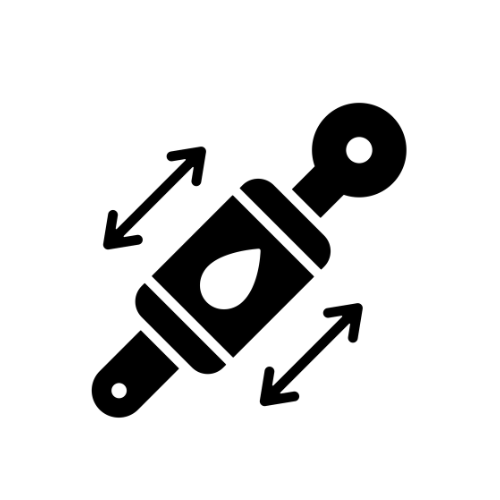
Our mission is to be your trusted resource for everything related to car cylinders.
